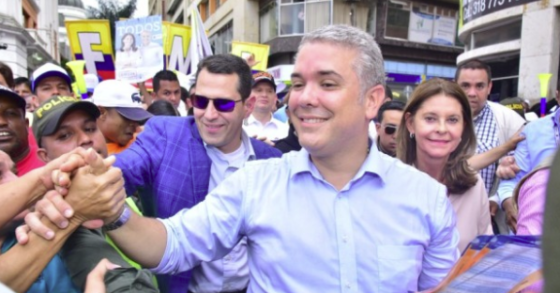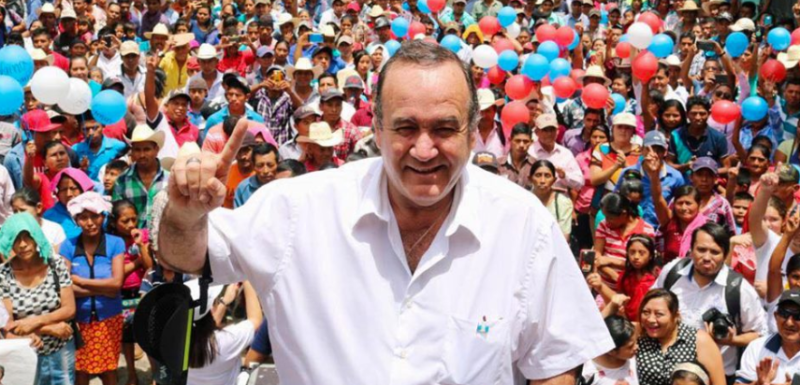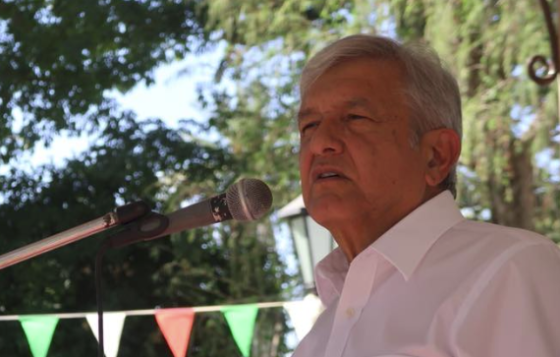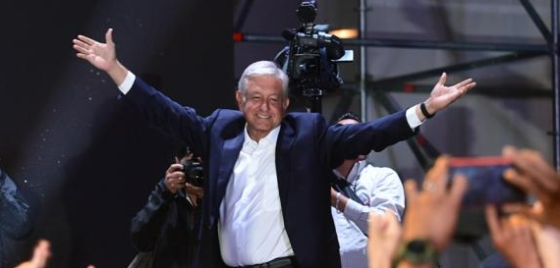
Will Colombia’s New President Deliver on His Promises?
Iván Duque, a conservative former senator, on Sunday won Colombia’s presidential runoff election. What does it mean for the country?
A Daily Publication of The Dialogue
Amid low turnout on Sunday, conservative candidate Alejandro Giammattei won Guatemala’s presidential runoff election, defeating former First Lady Sandra Torres. Giammattei, who opposes gay marriage and backs the death penalty, succeeded in being elected president on his fourth attempt. To what can Giammattei attribute his victory, and how strong is his mandate? What policies can Guatemalans expect during his presidency? To what extent will Giammattei address corruption and protect human rights? What does his election mean for Guatemala’s relations with the United States?
Mario Polanco, director of Grupo de Apoyo Mútuo in Guatemala City “Abstentionism won. The crossroads where the population found itself during the electoral process meant that neither of the candidates fulfilled expectations, but legally it was necessary to choose one of them. One might think that the population was more inclined to support the more conservative candidate, though it is also possible that the vote was in opposition of Sandra Torres, who had generated disapproval over the past 12 years, especially as the then-wife of former President Álvaro Colom, whose performance was far from transparent. Looking at the results, it can be said that the big winner was abstentionism, which reached 57 percent. However, in a democratic system, even if few vote, it is they who will choose. For better or for worse, Alejandro Giammattei won on his fourth attempt to become president. The president-elect has had a conservative stance on every social issue. However, this doesn’t generate as much fear as do the people who surround Giammattei, who are the same ones who have been at current President Jimmy Morales’ side over the past four years. They are promoters of impunity and defenders of corruption, and some have links to organized crime. It is unknown what will occur in Guatemala, but we are possibly seeing the beginning of a new four-year setback.”
Salvador Paiz, president of FUNSEPA and board member of FUNDESA in Guatemala City: “With a spread of more than 16 percent, President-elect Giammattei obtained a solid endorsement from Guatemalan voters. However, he does face as his most immediate challenge a growing sense of unrest and impatience among Guatemalan citizens (as evidenced by the 57 percent of abstention of registered voters in the second round of the election), the slow progress on social indicators and the frustration toward politicians and the ‘vieja política’ (the old way of politics). The machine we know as government is broken. We cannot delay any longer. The country must stand behind its new elected leader and embrace a process of necessary structural reforms, such as: 1.) procurement in a way that improves efficiencies while preserving transparency, 2.) infrastructure in a way that precludes corruption, 3.) unclogging the courts while strengthening their independence and 4.) civil service reform, to mention just a few. These reforms should lead to accelerated job creation and hence reductions in irregular migration. The international community would do well to stand behind President-elect Giammattei and redirect its collaboration toward these priorities. President-elect Giammattei is aware of the depth of the relationships with the international community and especially with the United States, as our main trading partner. As such, he will be forced to address the controversial issue of the safe third country agreement. He has already met with Acting U.S. Homeland Security Secretary Kevin McAleenan. However, the details of that meeting, as everything else that is related to this agreement, are still not public.”
James Meyer, partner at Harper Meyer in Miami: “Populism on the left, populism on the right. With the very low voter turnout on Sunday, Guatemalans demonstrated that they have had enough of both. The outcome also reflects that the people of Guatemala still palpably yearn for a government without rampant corruption, and President-elect Alejandro Giammattei probably seemed like the candidate somewhat less likely to let that happen once again. He was also the candidate who was most likely to re-engage the private sector, create some economic stability and somewhat normalize relations with the United States, with his promise to renegotiate the controversial third country asylum agreement. With that collective understanding and a realization of what the alternative might have been, most Guatemalans are probably breathing a sigh of relief that their country seems to have yet another opportunity to pull itself away from the weak institutions of the past. The next four years will be floating on such high hopes while being anchored to historically merited low expectations.”
The Latin America Advisor features Q&A with leaders in politics, economics, and finance every business day. The publication is available to members of the Dialogue’s Corporate Program and others by subscription.
Iván Duque, a conservative former senator, on Sunday won Colombia’s presidential runoff election. What does it mean for the country?
Mexicans go to the polls on Sunday, July 1, for the country’s presidential, legislative and local elections. What can we expect?
Leftist Andrés Manuel López Obrador swept to victory Sunday in Mexico. What changes are in store?
 Conservative Alejandro Giammattei was elected Guatemala’s president on Sunday in the country’s presidential runoff. // File Photo: Giammattei Campaign.
Conservative Alejandro Giammattei was elected Guatemala’s president on Sunday in the country’s presidential runoff. // File Photo: Giammattei Campaign.

